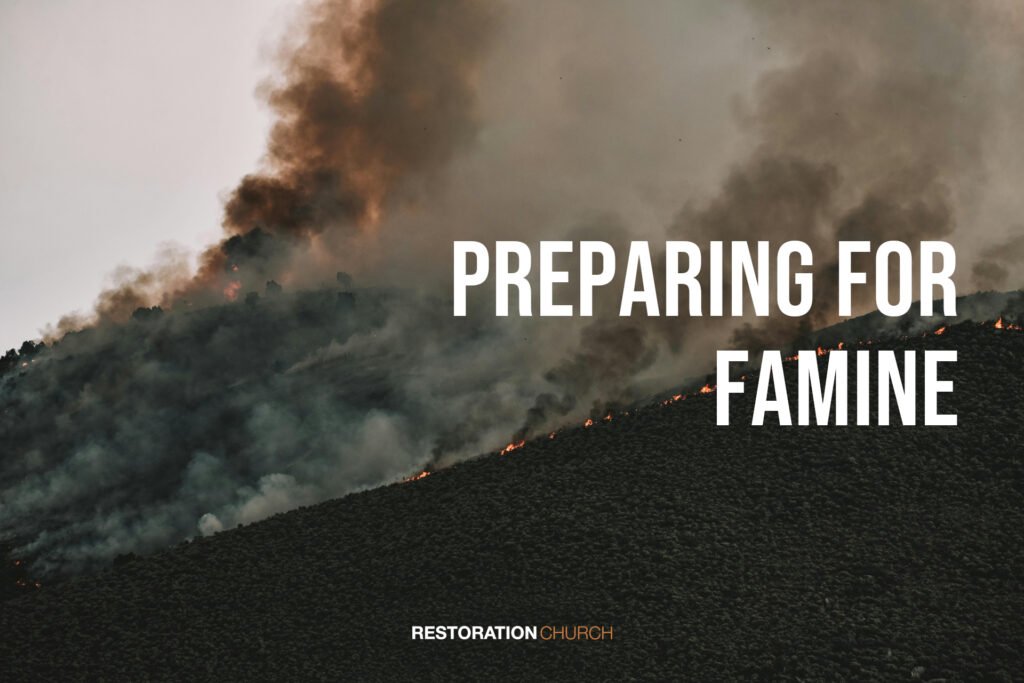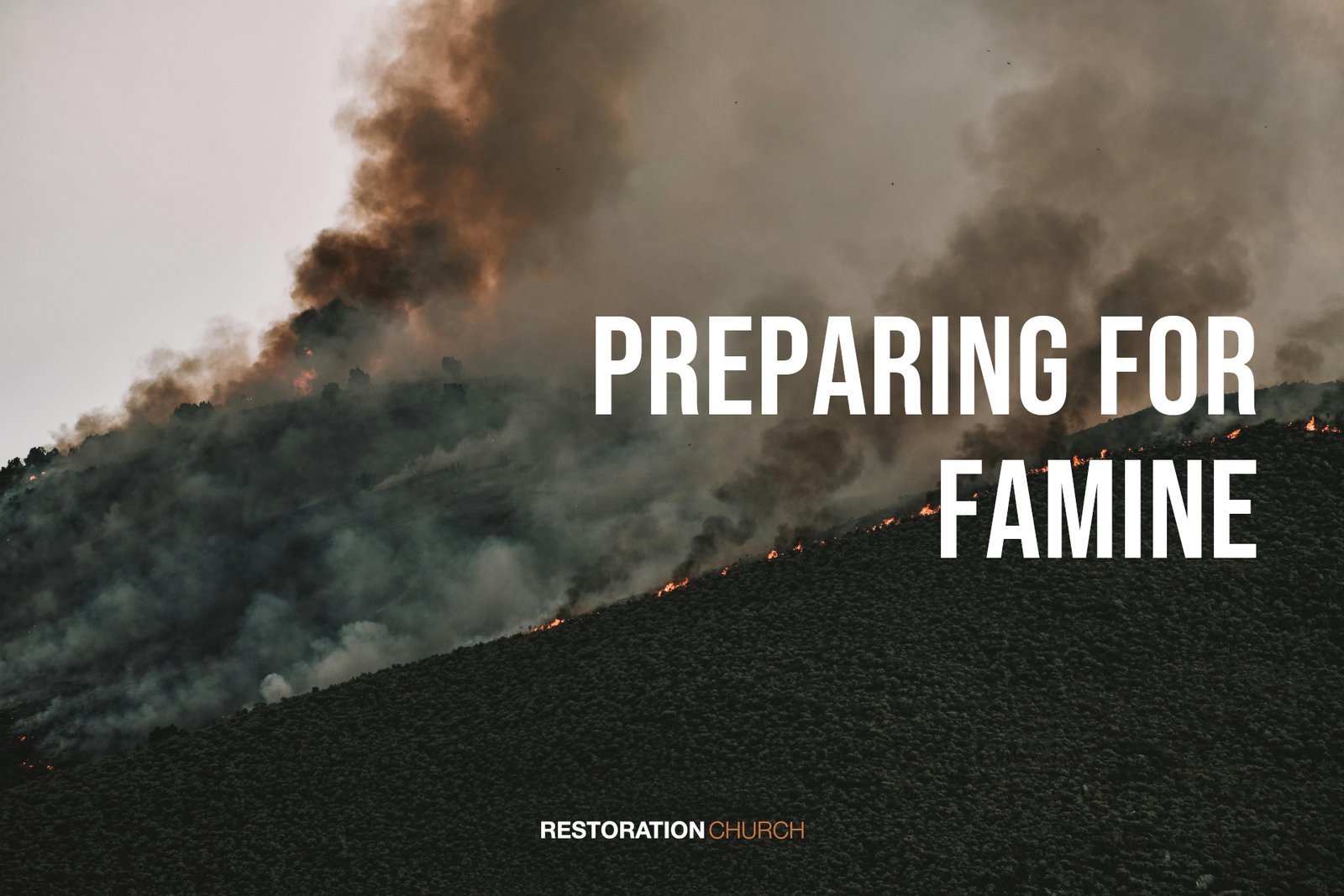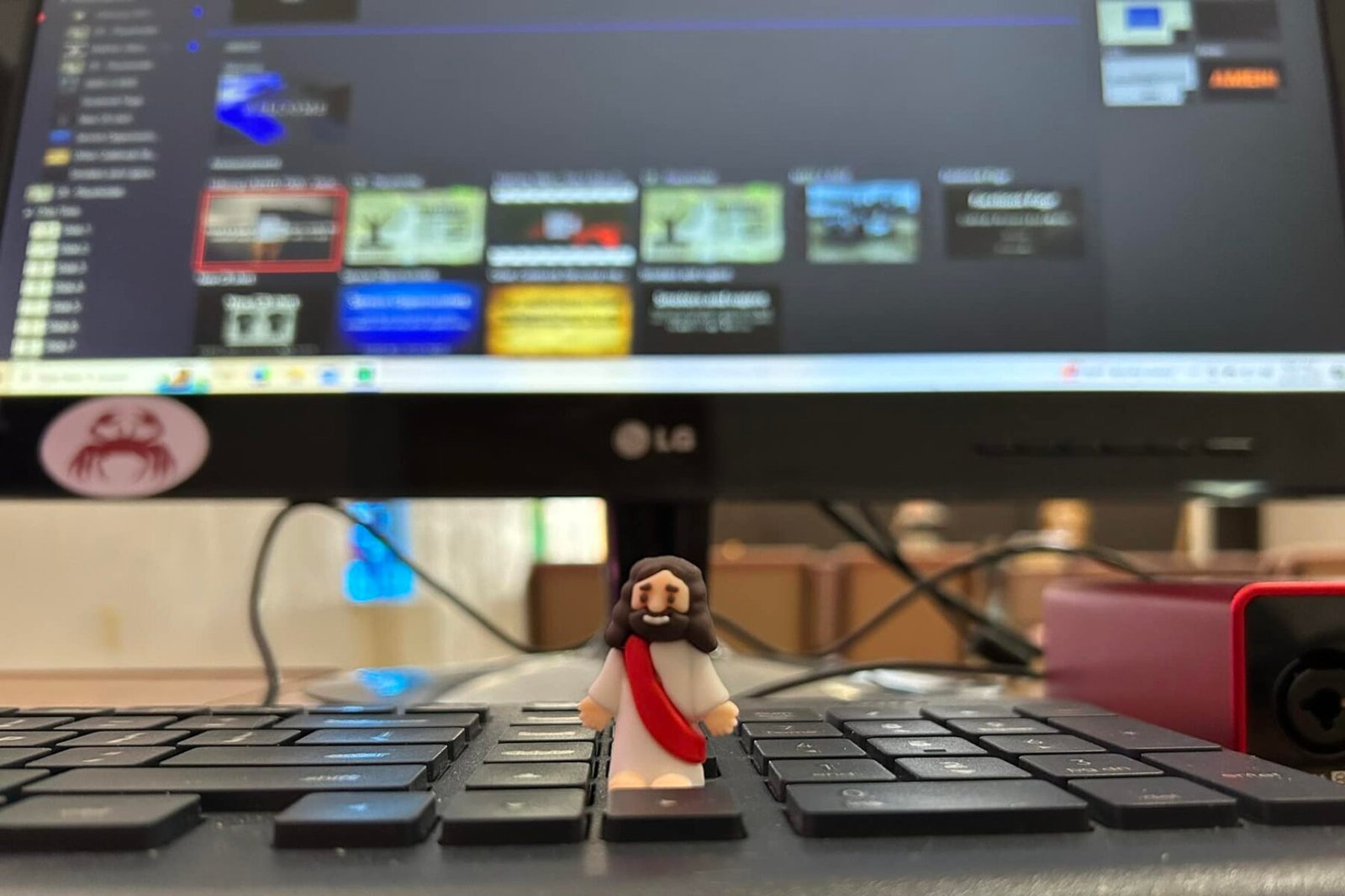Preparing for Famine

Throughout our lives, there will be times of feast and times of famine. While many of us don’t think of famine as a “real” problem (because we are privileged to live in a country where food is readily available), I do not only speak of literal famine. Perhaps it will be useful to begin by defining what I mean by famine. I mean a time in your life where you are struggling to stay afloat. Many things could cause this. It may be different for everyone. It could be depression, financial hardship, or addictions.
I would argue that at the root of many of these problems, we would find a spiritual famine happening. For many, the spiritual famine is the silent killer. The enemy uses this opportunity to sneak in and keep you separated from God. There are some things we can learn from the story of Joseph to help us prepare for such times in our lives.
Times of prosperity
Everyone experiences times of prosperity, though all too often it doesn’t last as long as we would like. We get some unexpected or extra money to spend, we get a job promotion which leaves us feeling good about ourselves, we go on vacations which allow us to relax or feel adventurous. The times of joy will come, and we should praise God when they do!
“Are any of you suffering hardships? You should pray. Are any of you happy? You should sing praises.”
James 5:13 (NLT)
Why should we prepare?
I know I am guilty of enjoying the good times while they’re happening without any worry about the future. I think this happens with a lot of people. This is an incredibly dangerous mistake though. Why you ask? Because it’s not a matter of IF, but WHEN the times of trouble come again. As a result, we should try to be more mindful of the future and prepare for the next famine, whenever it may be. An investor doesn’t just enjoy his earnings when his stocks are up, he reinvests them.

Joseph took this same approach while he was the second-in-command over Egypt. To begin, I’ll give you a bit of context. Joseph was the son of Jacob (or Israel, if you prefer), who was blessed and favored by God. Jacob favored Joseph over his 11 brothers, so, as you can imagine, they were quite jealous of Joseph. After some discussion, they decided to sell Joseph into slavery and lie to their father, saying Joseph was killed by a wild animal.
While in slavery, Joseph went to work for a guard captain named Potiphar (POT-if-er). Genesis 39:2 tells us that “The LORD was with Joseph, so he succeeded in everything he did as he served the home of his Egyptian master.” As a result, he rose to a position of power in the household until Potiphar’s wife accused him of trying to force himself on her. As you can imagine, this landed Joseph in prison, where he spent several years.
Just like before, God was with Joseph and caused everything he did to succeed (Genesis 35:21). During his time there, he interpreted dreams for a few of Pharaoh’s advisors. Eventually, one of those advisors recommended Joseph when Pharaoh had a dream that needed interpreting. Genesis 41:29-30 sums up his interpretation:
The next seven years will be a period of great prosperity throughout the land of Egypt. But afterward there will be seven years of famine so great that all the prosperity will be forgotten in Egypt. Famine will destroy the land.
Genesis 41:29-30 (NLT)
Even Pharaoh, the king of Egypt who lived in luxury, experienced famine. Though scripture tells us repeatedly that God was with Joseph and everything Joseph did was successful, he also experienced famine. You can bet that we are no exception to this, which leads us to the next question.
How do you Prepare?
I’m glad you asked! I think we can learn a lot by observing Joseph’s suggestions for Pharaoh, so let’s do just that.
“Have them gather all the food produced in the good years that are just ahead and bring it to Pharaoh’s storehouses. Store it away, and guard it so there will be food in the cities. That way there will be enough to eat when the seven years of famine come to the land of Egypt. Otherwise this famine will destroy the land.”
Genesis 41:35-36 (NLT)
I have highlighted the parts of the verse that I want to focus on. Joseph told Pharaoh to store away the extra food during the time of prosperity so it would be available during the famine. This is highlighted in green because that’s something we should do. He warns that if we don’t store away food, the famine will destroy us. This is highlighted in red because it’s a warning.
While Joseph was talking about a literal famine, I explained earlier how a famine could be representative of any time in our life when we’re far from God or struggling with sin. So how do we prepare? We store away God’s word to pull out in a time of trouble. The good thing about storing away God’s word is that it never runs out. It’s an infinite supply. Once it’s in your store, it’s in there forever.

So how do I store God’s word?
The process of storing God’s word for later use is simple, but not always easy. What I mean is that the instructions are simple to understand, though implementing them can be difficult at times. This is because life gets busy, it doesn’t always sound like fun, or because some people (like me) just have a problem with remembering things. Nonetheless, I will provide the steps I’ve found to be effective for storing God’s word for later use:
- Choose a specific area of struggle to focus in on. This could be pornography, adultery, stealing, idolatry, or anything else that keeps you from God.
- Find out what scripture says about that particular thing. If you’re not sure, there’s lots of tools to help you find them. Many bibles even come with a reference for this particular purpose.
- Select one or two of those verses and work on memorizing them. If you can memorize the location, then that’s helpful for reference, but if not that’s okay. If you can memorize the content and repeat it, you can always find the location later if needed.
- Repeat these verses until you can say them in your sleep. Recite them when you’re in the car, in a waiting room, using the restroom, or even just watching TV. Practice it like a gunslinger practices his draw.
- Once you have mastered one of those verses and can recite it from memory after a week or two, go back to step 1 and repeat. For each verse you master, your store grows for the times of famine.
When Famine comes
Okay, so now we know how to store God’s word, but it’s still hard to know what to do with that. Is it really useful for any more than a trivia night or understanding a reference in a worship song? The answer is a resounding YES! This is where the rubber meets the road, so to speak. I hope I do not confuse you, but I’m going to mix metaphors a bit. Ephesians has this to say about the word:
“Put on salvation as your helmet, and take the sword of the Spirit, which is the word of God.”
Ephesians 6:17 (NLT)
Paul says the word is to be our sword against the enemy’s attacks. So what do we do with those verses we put in our store? We use them to defend ourselves against the attacks of the enemy. He loves to attack when we are struggling and kick us while we’re down. If we can manage to access our store, we can effectively repel his attacks.
In times of temptation
So what does this look like practically? In times of temptation, the practice will pay off. Ideally, you will have practiced the verse to the point that it’s almost a knee-jerk reaction. You don’t have to look it up or try to remember it, it’s just there. Holy Spirit has a way of bringing these verses to mind when you need them.
When faced with temptation, I have found it helpful to talk directly to that temptation as though it were a person right in front of me. I openly refuse the temptation and begin reciting the scripture I had memorized to build my strength and send the threat away. We can also look at Luke 4 and see that Jesus did exactly this when he was tempted by Satan over 40 days.
“Then Jesus, full of the Holy Spirit, returned from the Jordan River. He was led by the Spirit in the wilderness, where he was tempted by the devil for forty days. Jesus ate nothing all that time and became very hungry.
Luke 4:1-13
Then the devil said to him, “If you are the Son of God, tell this stone to become a loaf of bread.” But Jesus told him, “No! The Scriptures say, ‘People do not live by bread alone.’ ”
Then the devil took him up and revealed to him all the kingdoms of the world in a moment of time. “I will give you the glory of these kingdoms and authority over them,” the devil said, “because they are mine to give to anyone I please. I will give it all to you if you will worship me.” Jesus replied, “The Scriptures say, ‘You must worship the Lord your God and serve only him.’”
Then the devil took him to Jerusalem, to the highest point of the Temple, and said, “If you are the Son of God, jump off! For the Scriptures say, ‘He will order his angels to protect and guard you. And they will hold you up with their hands so you won’t even hurt your foot on a stone.’ Jesus responded, “The Scriptures also say, ‘You must not test the Lord your God.’ When the devil had finished tempting Jesus, he left him until the next opportunity came.”
We should follow examples such as this when temptation strikes, using God’s word in the same way Jesus did. It is difficult to use scripture to defend against the attacks of the enemy if you aren’t familiar with relevant verses. This is where the memorizing or “storing” of God’s word comes into play, so when you’re tempted you can pull them out and use them just the way Jesus did.
Continuing to look to God
It is not always easy to keep our eyes on God, especially during times of famine. Throughout the Old Testament, we can see that God restores those who endures the wilderness while continuing to seek Him. For instance, Job (pronounced as “jobe”) lost everything. He lost his kids, his animals, his home, and his health all in the same day. Then his friends came and told him he must have done something to deserve it. After working through his grief, Job decided he would continue to worship God and we can see that he was rewarded in Job 42:10-13.
‘When Job prayed for his friends, the Lord restored his fortunes. In fact, the Lord gave him twice as much as before! Then all his brothers, sisters, and former friends came and feasted with him in his home. And they consoled him and comforted him because of all the trials the Lord had brought against him. And each of them brought him a gift of money and a gold ring. So the Lord blessed Job in the second half of his life even more than in the beginning. For now he had 14,000 sheep, 6,000 camels, 1,000 teams of oxen, and 1,000 female donkeys. He also gave Job seven more sons and three more daughters. ‘
Job 42:10-13
Not only did God return Job’s fortunes, but he doubled it! We can also see this in the story of Joseph. On top of rising from slavery and imprisonment to a position of power under the Pharaoh, Joseph was rewarded with the best of everything for his family.
“Pharaoh said to Joseph, “Tell your brothers, ‘This is what you must do: Load your pack animals, and hurry back to the land of Canaan. Then get your father and all of your families, and return here to me. I will give you the very best land in Egypt, and you will eat from the best that the land produces.’” Then Pharaoh said to Joseph, “Tell your brothers, ‘Take wagons from the land of Egypt to carry your little children and your wives, and bring your father here. Don’t worry about your personal belongings, for the best of all the land of Egypt is yours.’” “
Genesis 45:17-20
God rewards us for seeking him in times of difficulty. The best way to do this is to wield our sword (which is the word) to defend against temptation and sin. 1 Peter sums up why we should continue to seek and obey during difficult times:
‘And after you have suffered a little while, the God of all grace, who has called you to his eternal glory in Christ, will himself restore, confirm, strengthen, and establish you. ‘
1 Peter 5:10
So I urge you, please begin preparing for famine. Please begin memorizing scripture so you are ready to take up your sword when the time comes because, make no mistake, the time will come.
More Posts

Preparing for Famine
Life's feasts and famines aren't always literal; they include hardships like financial woes or depression, and preparation for such times is essential.

Meet Our Pastor: Jeff Schulz
Jeff Schulz, passionate Associate Pastor of Outreach/Evangelism at Restoration, focuses on helping needy and equipping others for outreach.

The value of Words
Proverbs 25:11 suggests that words spoken aptly are valuable, like golden apples in silver settings, a principle reinforced by Solomon's wealth and wisdom.

